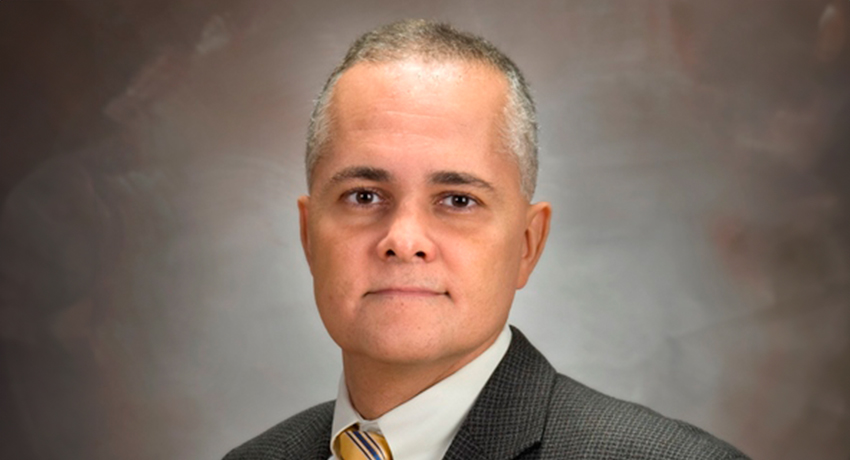A $2.5 million grant for the transformation of knowledge and treatment of bipolar disorder has been awarded to researchers at UTHealth Houston by Breakthrough Discoveries for Thriving with Bipolar Disorder (BD²).
Researchers leading the project are Jair Soares, MD, PhD, professor and chair and the Pat R. Rutherford, Jr. Chair in Psychiatry in the Louis A. Faillace, MD, Department of Psychiatry and Behavioral Sciences at McGovern Medical School at UTHealth Houston; and Rodrigo Machado-Vieira, MD, PhD, professor of psychiatry and director of the Bipolar Disorder Program in the department.
“This is a landmark initiative that will bring together several prestigious institutions and some of the leading scientists working in this area,” said Soares, who is also the director of the Center of Excellence on Mood Disorders. “We are excited to be part of this important effort and hopeful that the development of key knowledge will help us move towards the goal of precision psychiatry.”
Affecting nearly 40 million people worldwide, bipolar disorder is a serious mental health condition with dramatic and often unpredictable shifts in mood, energy, activity, and cognition. The BD² Integrated Network brings together two key models of advancing medicine. The first is the systematic collection of data from a defined set of participants over time, known as a longitudinal cohort study.
The second is the development of a system to repeatedly improve care for patients, known as a learning health network. The BD² Integrated Network aims to bring scale, time, and depth to phenotyping a cohort of people living with bipolar disorder.
“The goal is to address how symptoms are presented in relation to biomarkers that could be helpful to define best treatments,” Machado-Vieira said. “So, if a patient is presenting some symptoms with some biological findings, we aim that those findings will help to identify what would be the best treatment for that patient in a naturalistic setting.”
Researchers and clinicians see this data as the key to understanding patient subtypes, trajectories, and developing targeted interventions that will transform patient experience. This initial focus on bipolar I disorder allows the initiative to identify relevant patterns faster because diagnostic validity is stronger leading to less variation in the participants.
“Based on the profile of the individuals identified, clinicians could partner with researchers to identify and test alternative treatment approaches that are aligned with their biological profile,” Machado-Vieira said. “While these sub-studies are several years away, our infrastructure and network of providers make this vision uniquely possible and rapidly scalable.”
UTHealth Houston is one of the six regional centers in this initiative. Others are Brigham and Women’s Hospital-McLean Hospital, Johns Hopkins University, the University of Michigan, Mayo Clinic, and University of California Los Angeles. Researchers at UTHealth Houston will enroll up to 200 patients with bipolar disorder, who will be characterized through the collection of clinical, cognitive, imaging, and physiological markers over several years.
About UTHealth Houston
Established in 1972 by The University of Texas System Board of Regents, The University of Texas Health Science Center at Houston (UTHealth Houston) is Houston’s Health University and Texas’ resource for health care education, innovation, scientific discovery and excellence in patient care. The most comprehensive academic health center in the UT System and the U.S. Gulf Coast region, UTHealth Houston is home to Jane and Robert Cizik School of Nursing, John P. and Kathrine G. McGovern Medical School, D. Bradley McWilliams School of Biomedical Informatics, and schools of biomedical sciences, dentistry, and public health. UTHealth Houston includes the Dunn Behavioral Sciences Center and Harris County Psychiatric Center, as well as clinical practices UT Physicians, UT Dentists, and UT Health Services. The university’s primary teaching hospitals are Memorial Hermann-Texas Medical Center, Children’s Memorial Hermann Hospital, and Harris Health Lyndon B. Johnson Hospital. For more information, visit www.uth.edu.
About BD²
Breakthrough Discoveries for thriving with Bipolar Disorder is the first organization focused on funding and advancing research and care for bipolar disorder on a global scale. Our collaborative, open-science approach is designed to transform and shorten the time it takes for scientific breakthroughs to make a meaningful difference in the lives of the tens of millions of people with bipolar disorder. For more information, please visit bipolardiscoveries.org.
Media Inquiries: 713-500-3030


